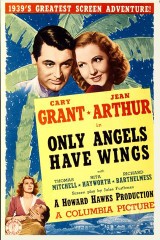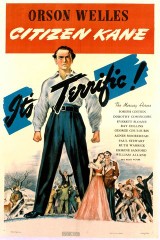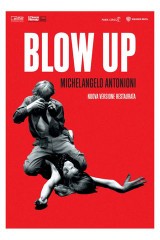
(Photo by Gabriel Grams/Getty Images)
Writer-director-producer-composer (and occasional actor) John Carpenter is a modern horror icon whose keen sense of tension and terror has helped establish his work as some of the finest genre filmmaking to hit the big screen. His best known film is probably the 1978 slasher classic Halloween, but the ’80s — Carpenter’s most critically and commercially successful decade — brought forth other beloved gems like The Thing, Escape from New York, Starman, and the cult classic They Live. After 2001’s Ghosts of Mars capped off a rather less than auspicious decade of films for him, Carpenter fell silent for several years, choosing instead to work on smaller projects like Showtime’s Masters of Horror series.
RT recently got the opportunity to speak with Carpenter, who not only gave us his Five Favorites (and then some — more on that below) but also went on to chat about his deep love of Westerns and his opinion on the Coen brothers.
When asked specifically about his Five Favorite Films, Carpenter had this to say: “I have two different categories of favorite films. One is the emotional favorites, which means these are generally films that I saw when I was a kid. Anything you see in your formative years is more powerful, because it really stays with you forever. The second category is films that I saw while I was learning the craft of motion pictures. That’s a whole different ball game. I fell in love with them as a mature person.”
Since we only have room for one list, we’ll let you read about John Carpenter’s “mature” Five Favorite Films below. But before we get there, here’s what he said about his “emotional favorites,” which he rattled off in quick succession: “When I was a kid, I loved The Curse of Frankenstein, The Creeping Unknown, X: The Unknown. I love Forbidden Planet, The Thing from Another World. They were science fiction/horror movies, generally. A lot of them were Hammer films, and the music in those movies… One of my heroes is a composer named James Bernard, and oh my god… I can still listen to his music today and be stirred and moved by it. But I think that you fall in love with… Well, again, when you’re young, it really is more powerful. Much more terrifying.”




Ryan Fujitani for Rotten Tomatoes: It would be easy for someone to look at your list of early “emotional favorites” and say, “Well, no wonder he ended up making movies like Halloween or The Thing.”
John Carpenter: You could say that, but it would be wrong. I got in this business to make Westerns. I’m a Western fan. Loved Westerns… Loved them. I mean, huge love. I think my first love… Well, cinema’s my first love, but along with science fiction and horror, when I was a kid in the ’50s, I saw Westerns! I was at the theater in 1959, buying my ticket to Rio Bravo. They held it over two weeks in our town, because everybody was going. And I went back again. I was in the theater, buying popcorn, as a little kid. Oh, I’ve watched it too many times. [laughs] Too many times.
RT: There seems to have been somewhat of a revival of interest in the Western lately. What’s your take on why their popularity in Hollywod dwindled in the first place?
Carpenter: There are a number of reasons. Television did it to death. And then, as brilliant as they were, the Italian Westerns parodied it to death. I remember seeing Once Upon A Time in the West, and it was a jawdropping movie. I couldn’t believe that movie. But after that, what are you going to do? I mean, you can’t do a gunfight any better than Henry Fonda and Charles Bronson. You cannot do it any better. You cannot; there’s nothing you can do. You cannot do a revenge story — Bronson’s whole journey in that — any better. What are you going to do?
And then, you know, there’s a bunch of left-wing Westerns that came along that occasionally got made. The Dances with Wolves, Little Big Man, stuff like that. But I’m talking about traditional Westerns here. And I guess people are asking that question now because of the Coens’ movie True Grit.
RT: What did you think of that, compared to the John Wayne version?
Carpenter: Oh, I prefer the original. I thought that they missed out on something the original had that they didn’t have. There’s great stuff in it, no doubt. But they did not have an emotional ending that resolved the relationship. The most important scene in the original True Grit with John Wayne and Kim Darby was how they resolved their relationship. When he’s with her there at the cemetery, she says, “I want you to be buried next to me, Rooster.” And he jumps over the fence on the horse. [laughs] The audience has to have that. We need that. Now, in the Coens’ version, he dies offscreen? Huh? Really? Really… It just cheats me.
RT: It’s reminiscent of the complaint some had about Josh Brolin’s fate in No Country for Old Men.
Carpenter: They have third-act problems. Believe me, I’m a guy who has third-act problems; I’m familiar with it. But it’s odd. Why would you do that to me? After all this time I’ve been with you?
However, their comedies are unbelievable. A Serious Man? I cannot stop laughing at that film. That movie just put me away! It’s the craziest thing. I love that film. And they’re very nice people, too.